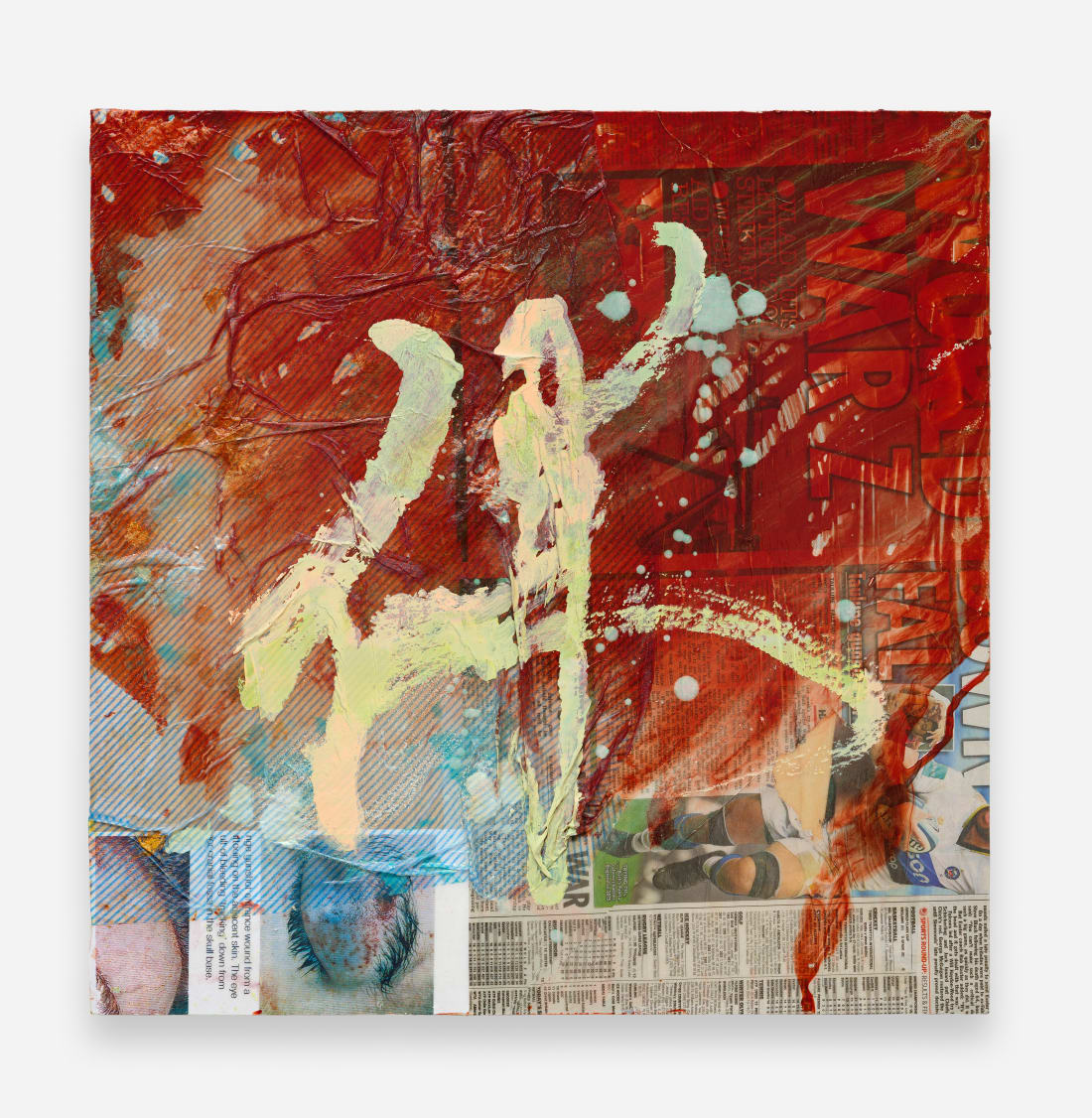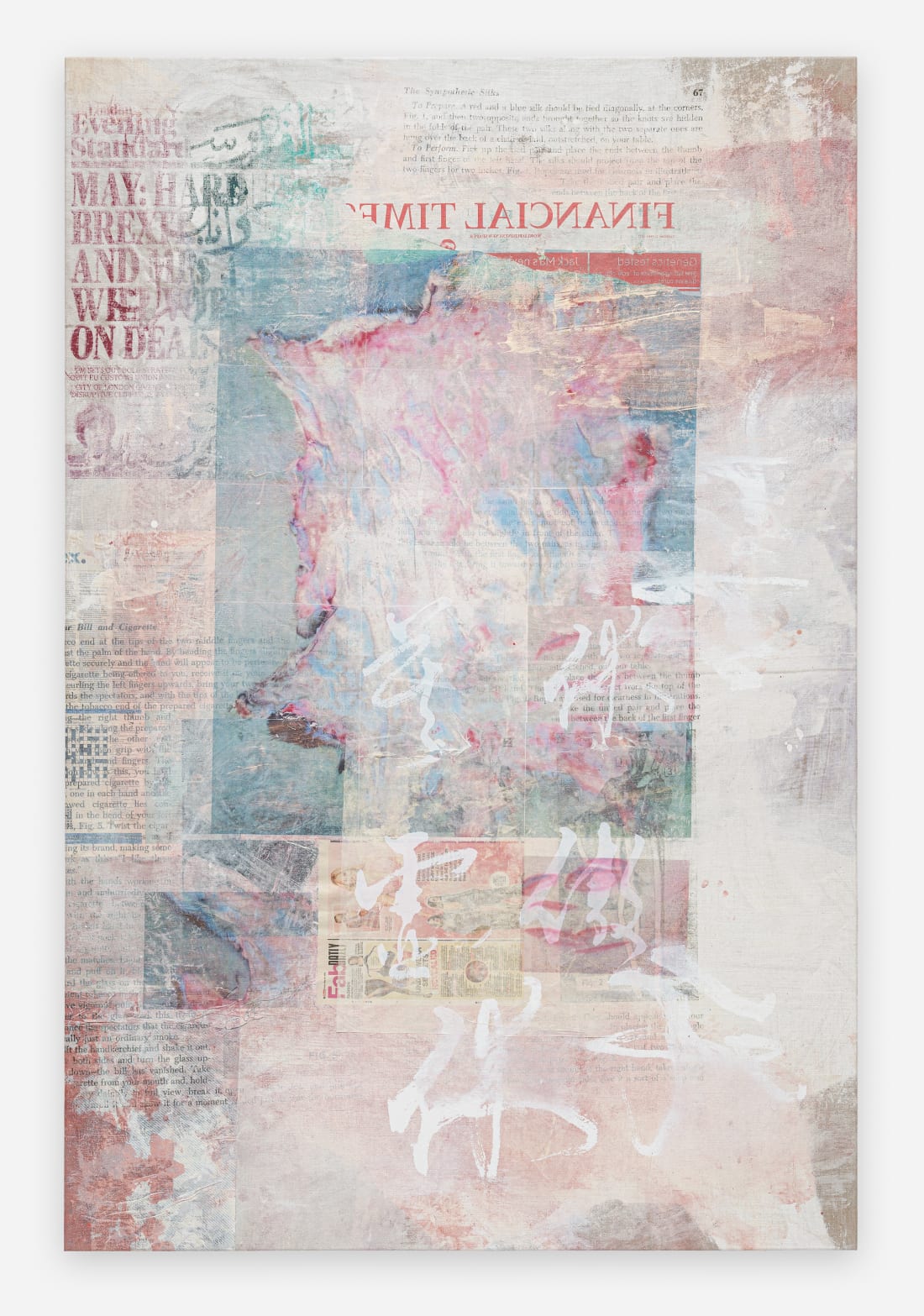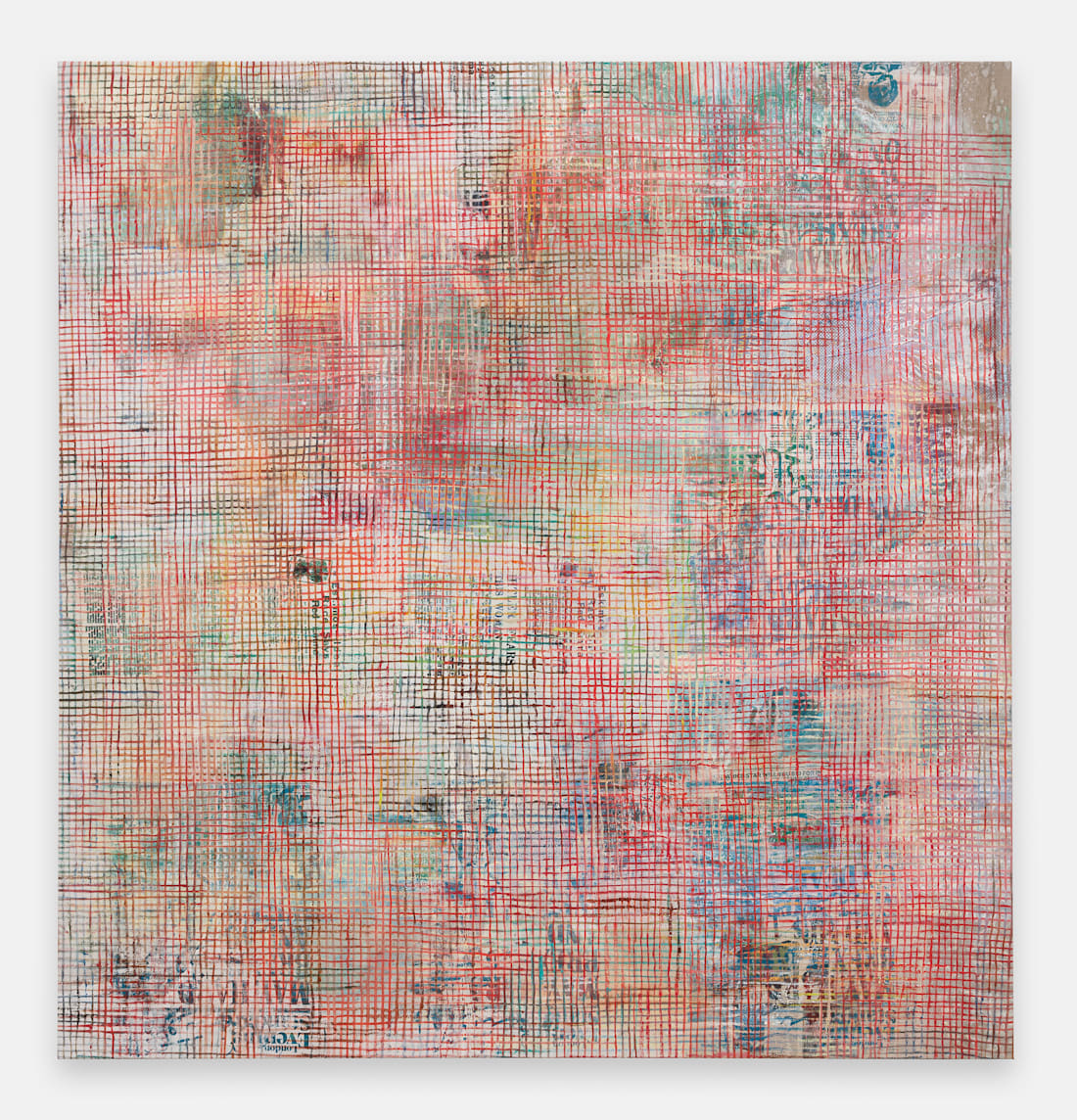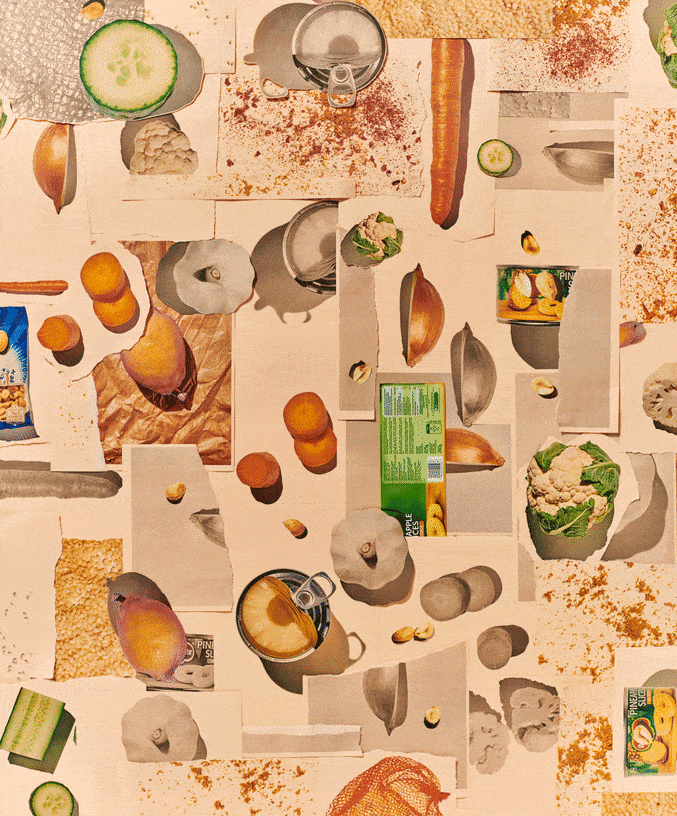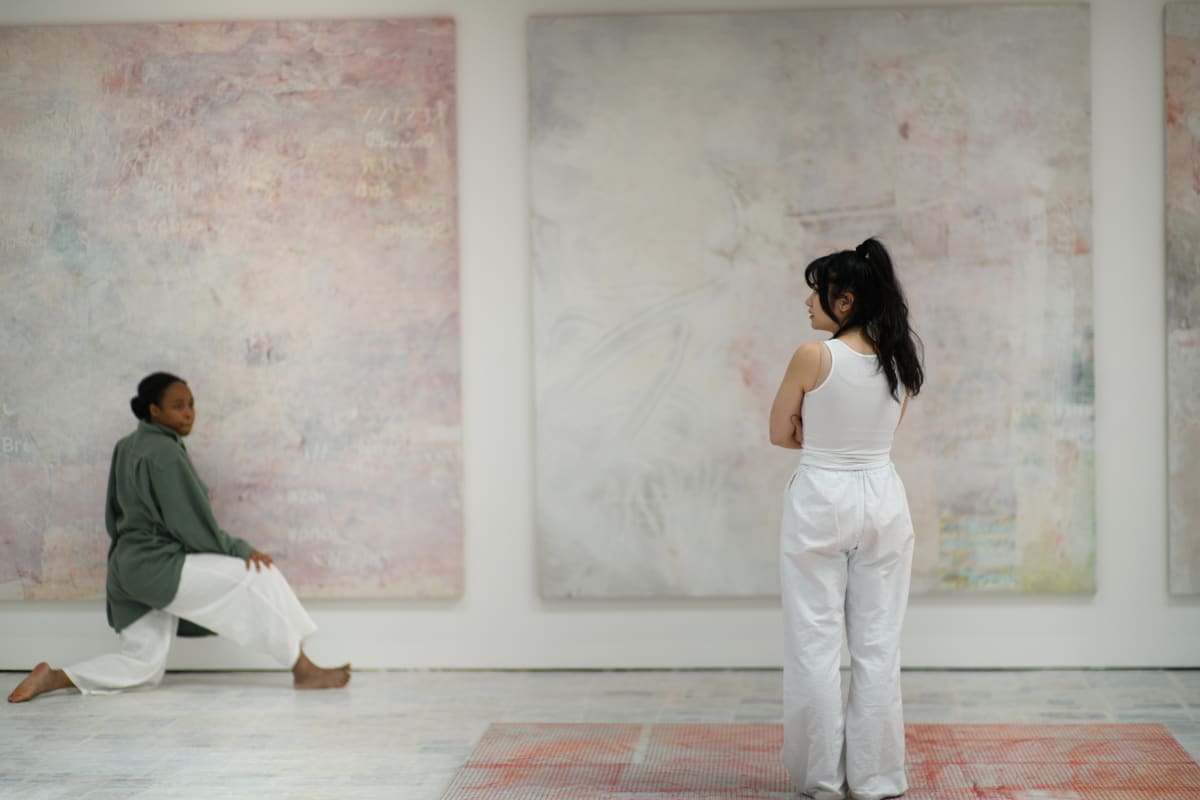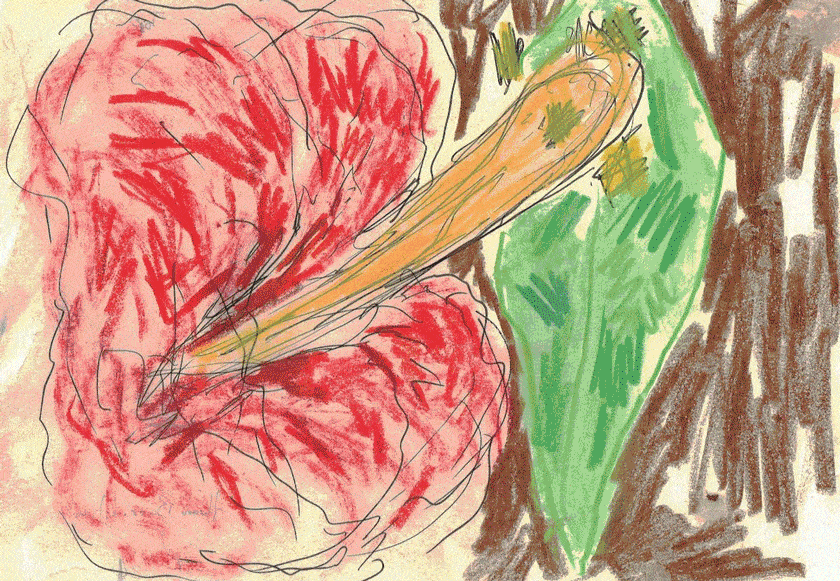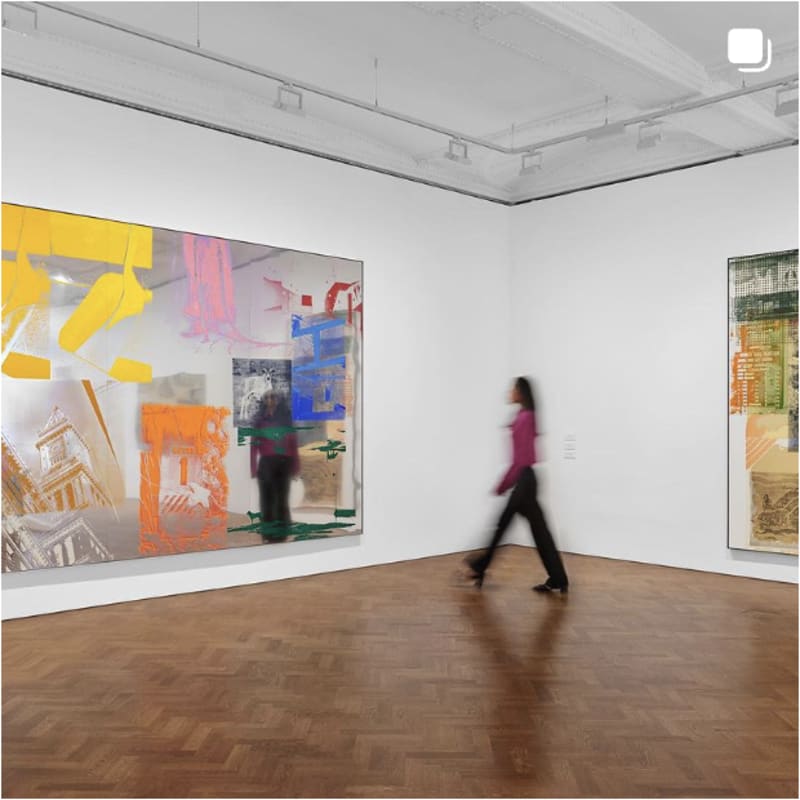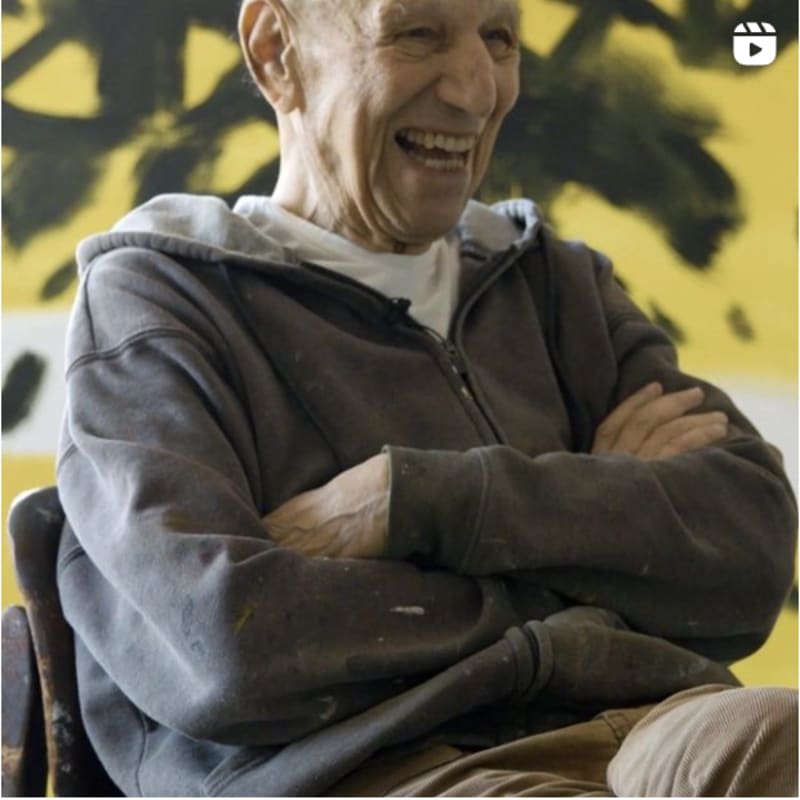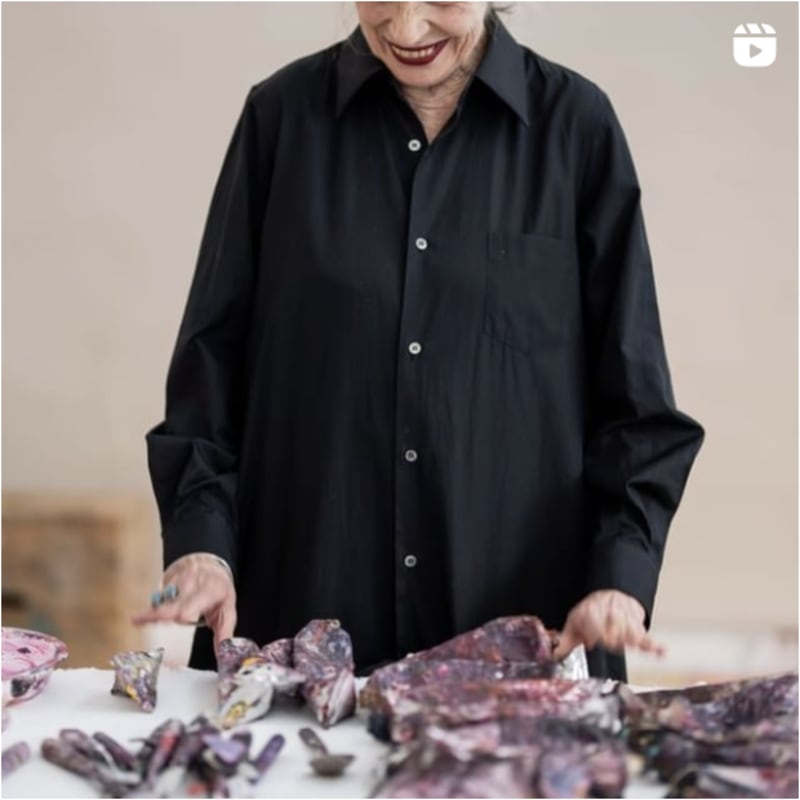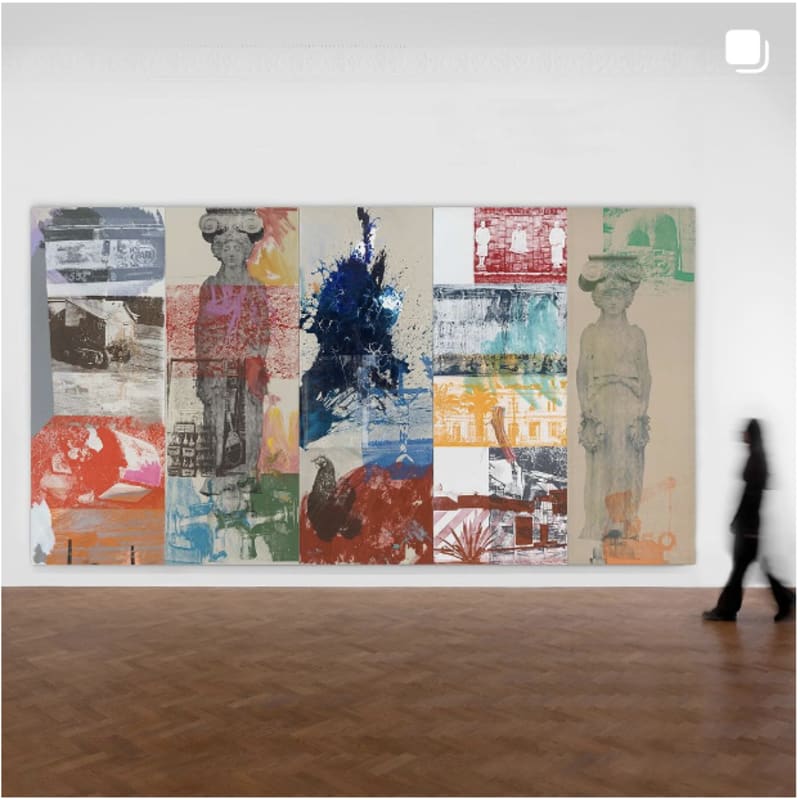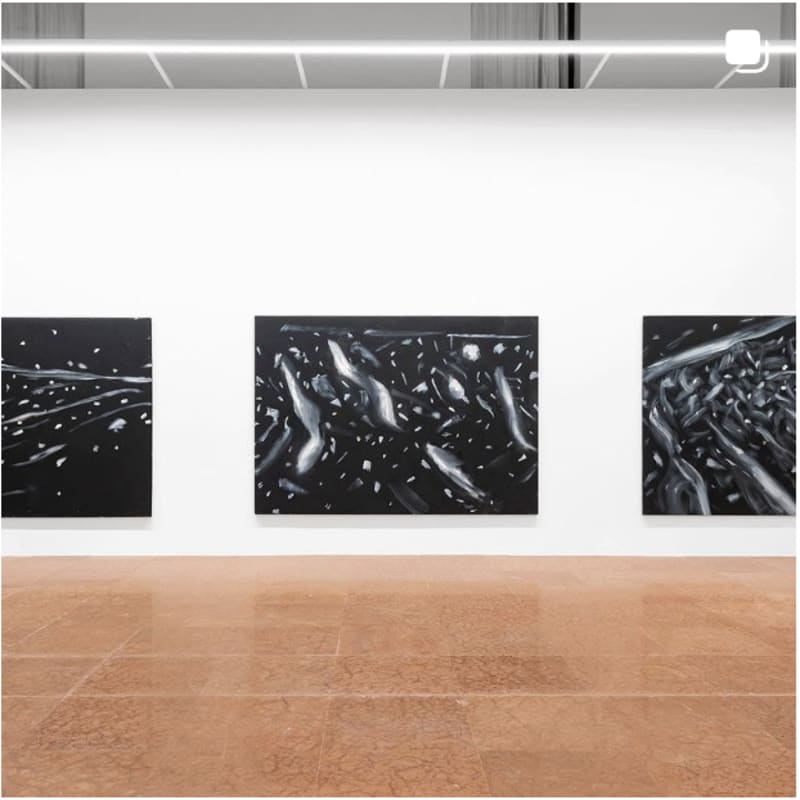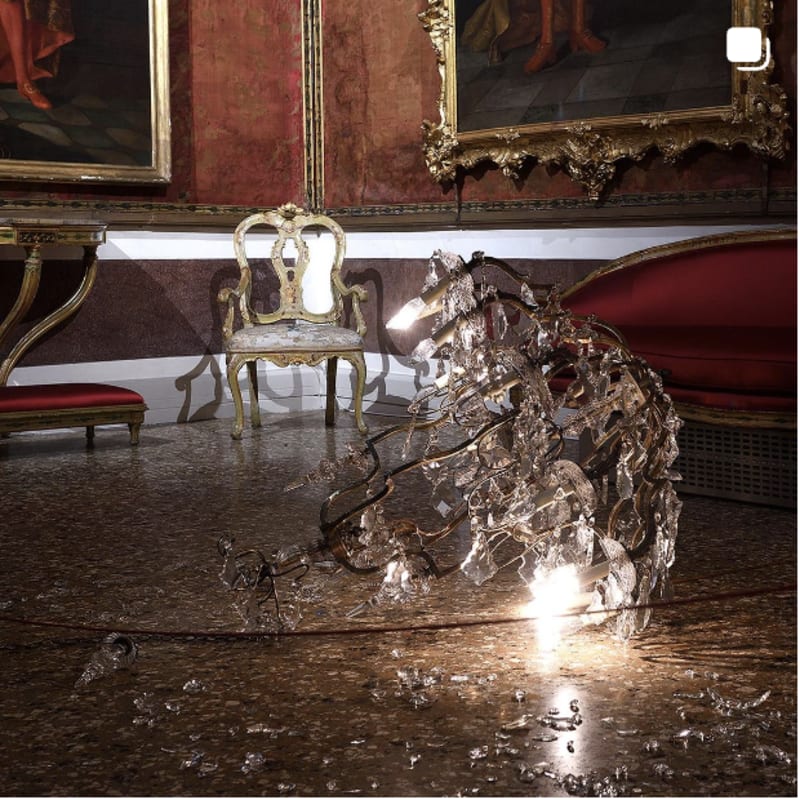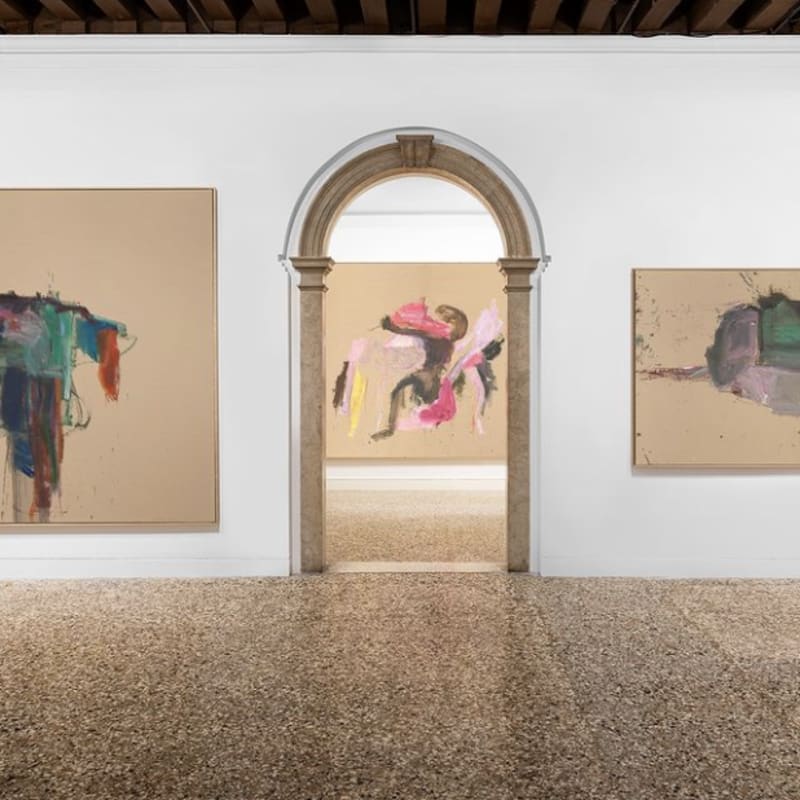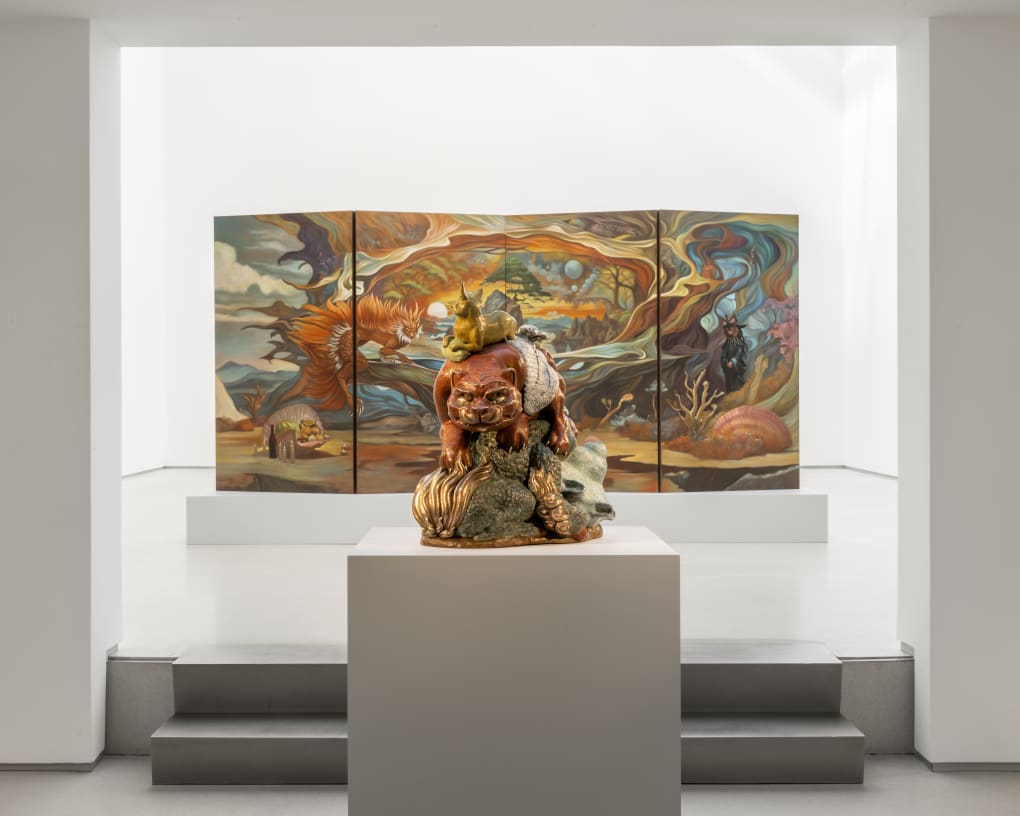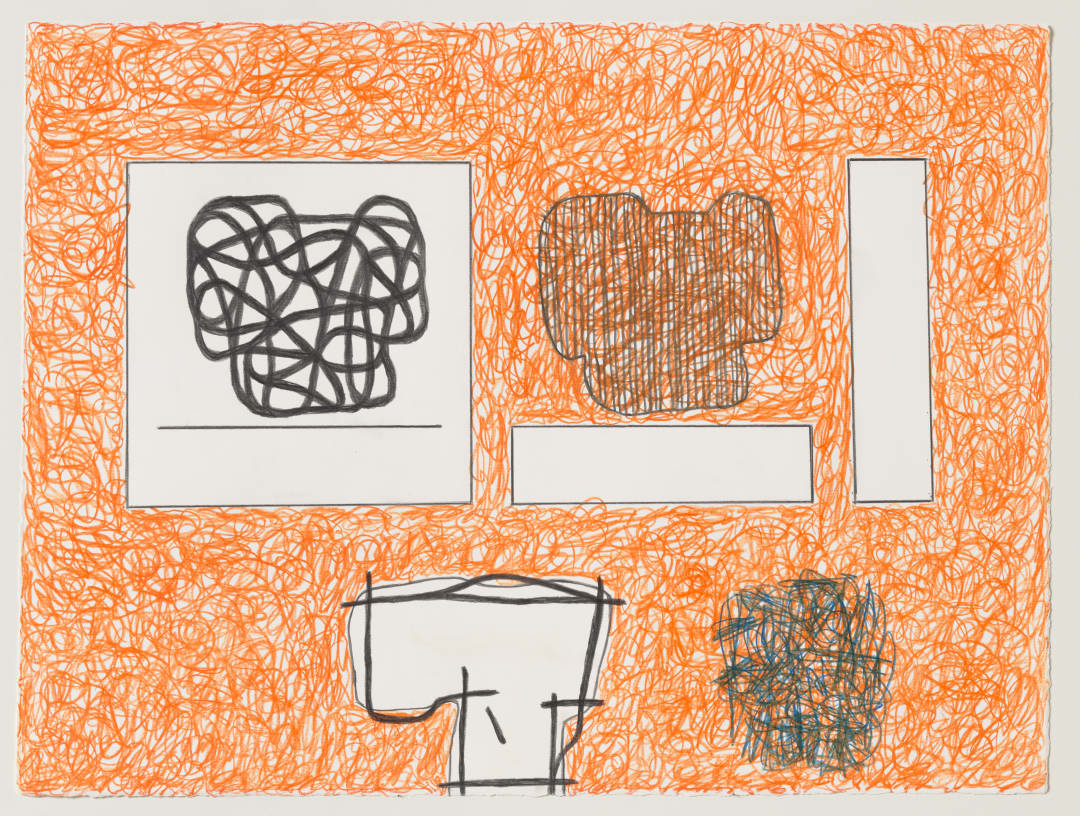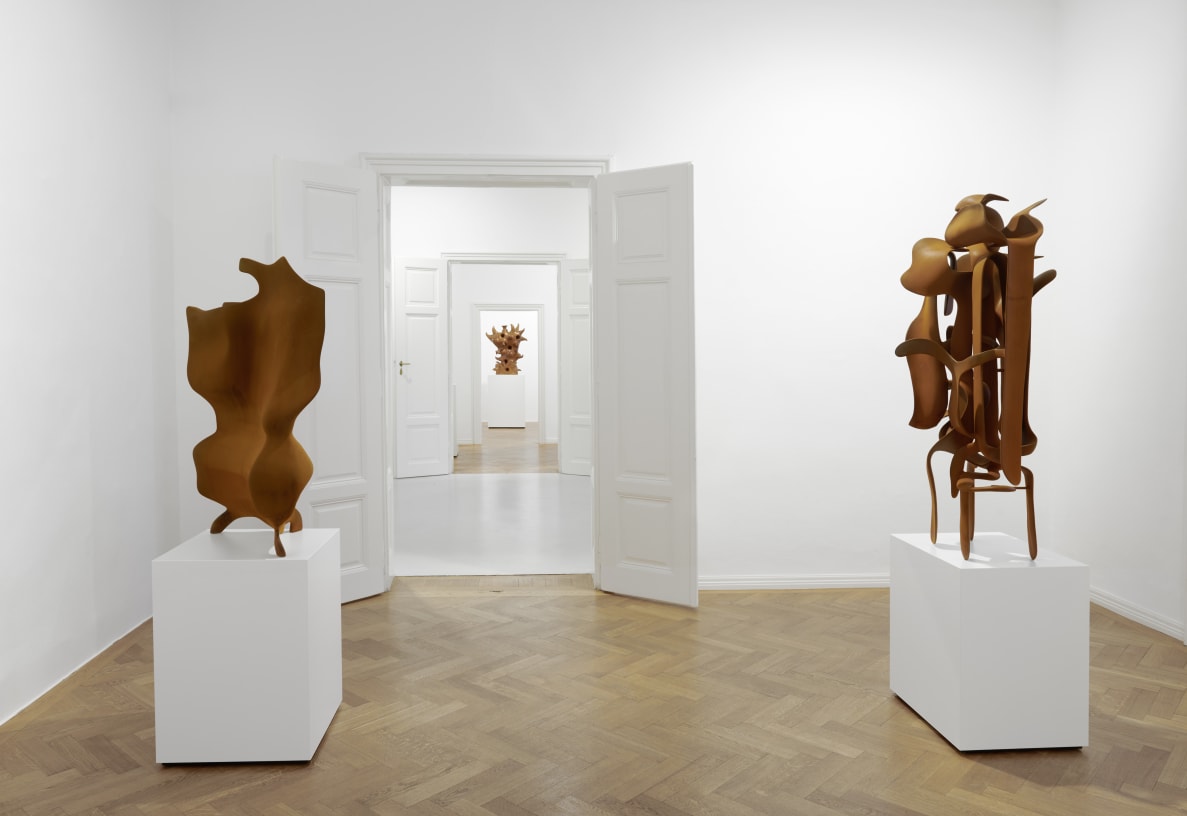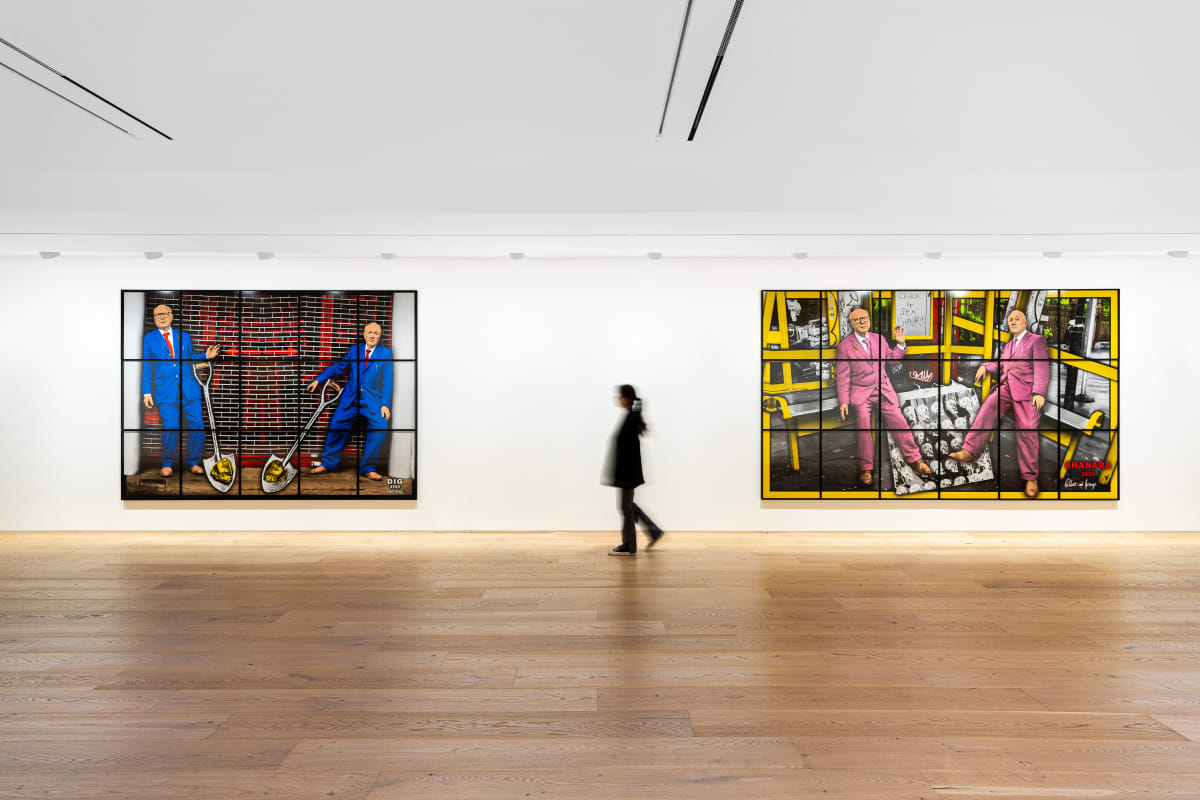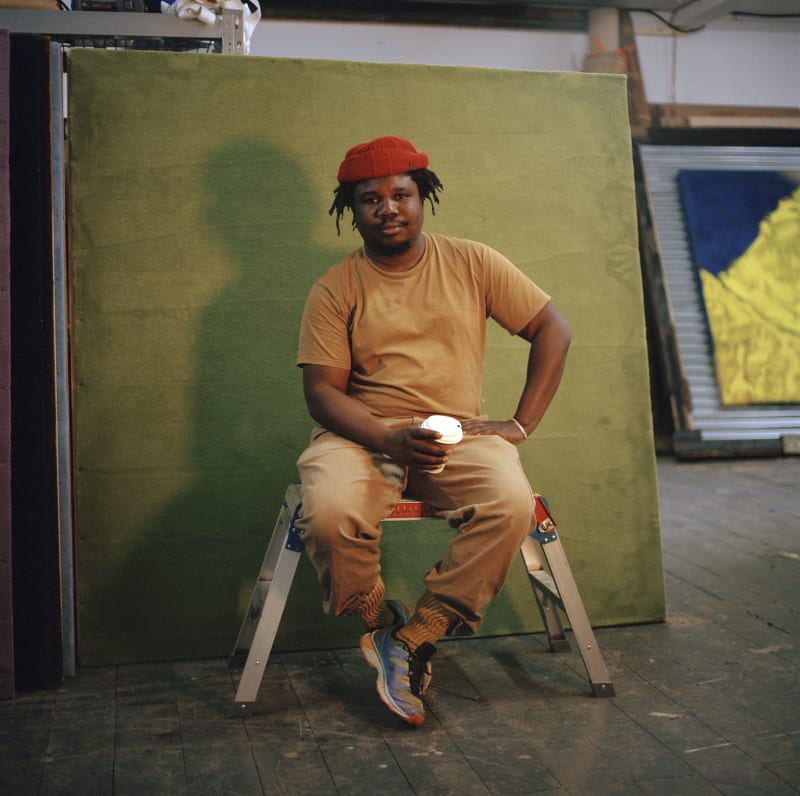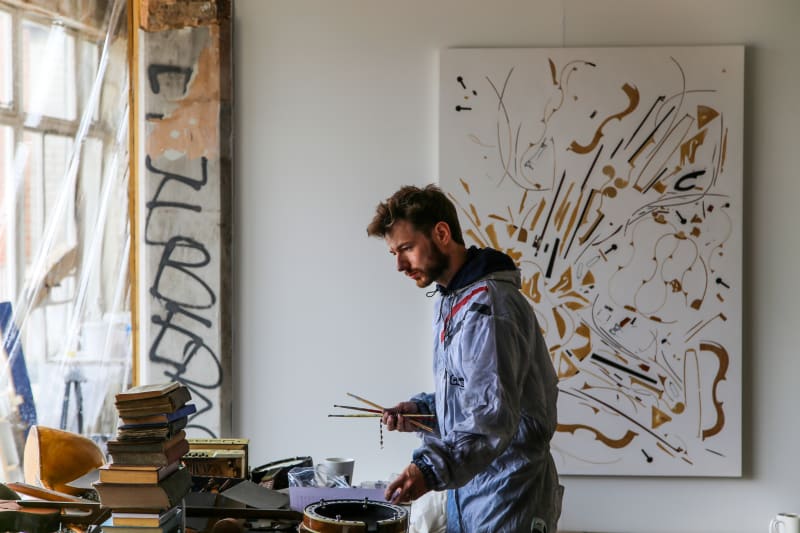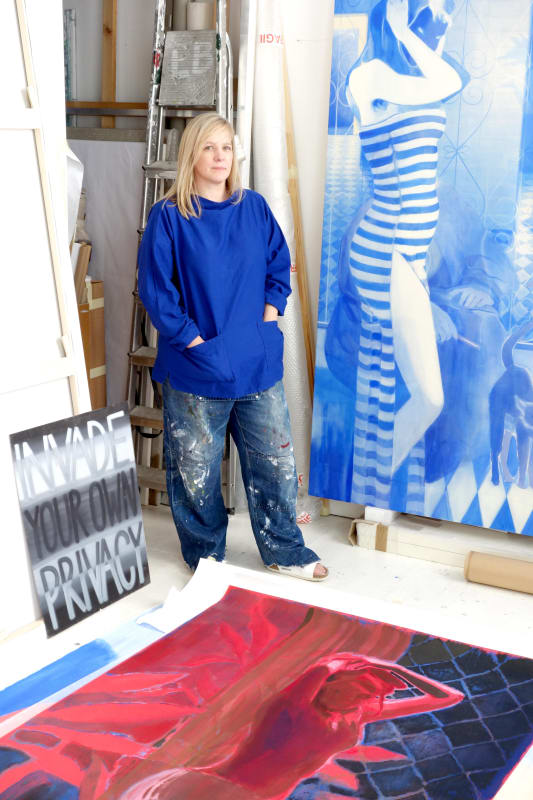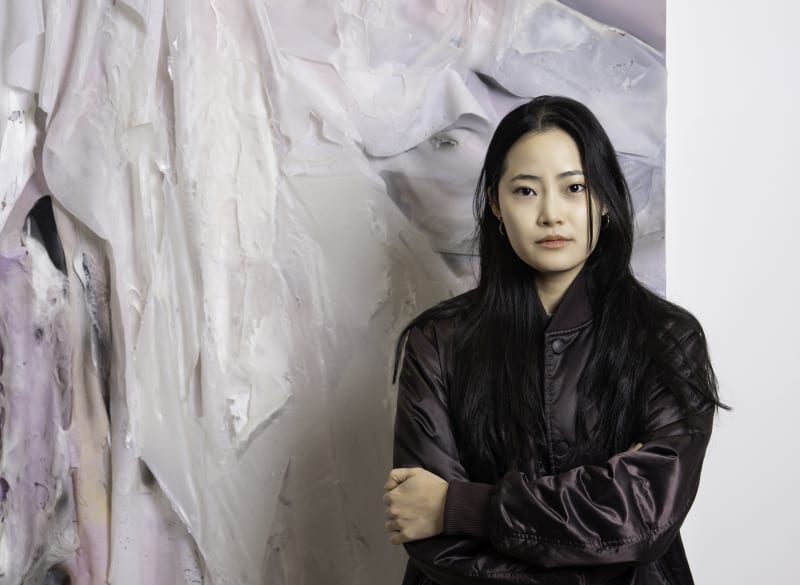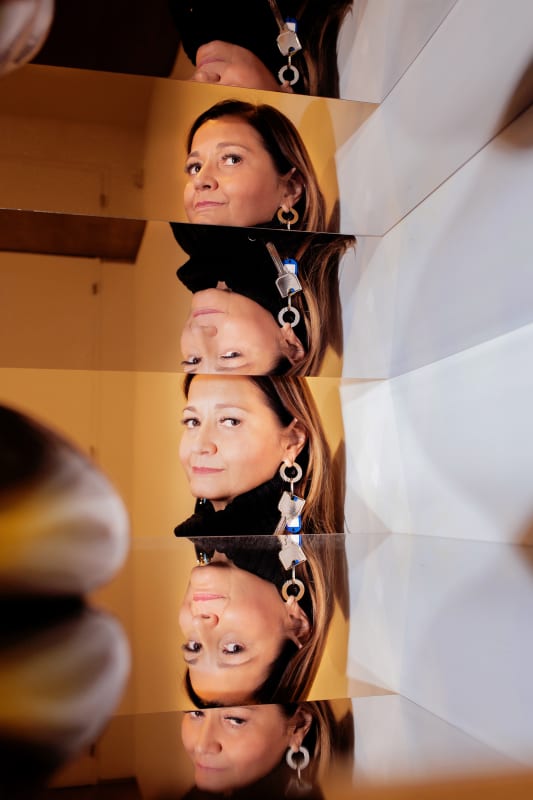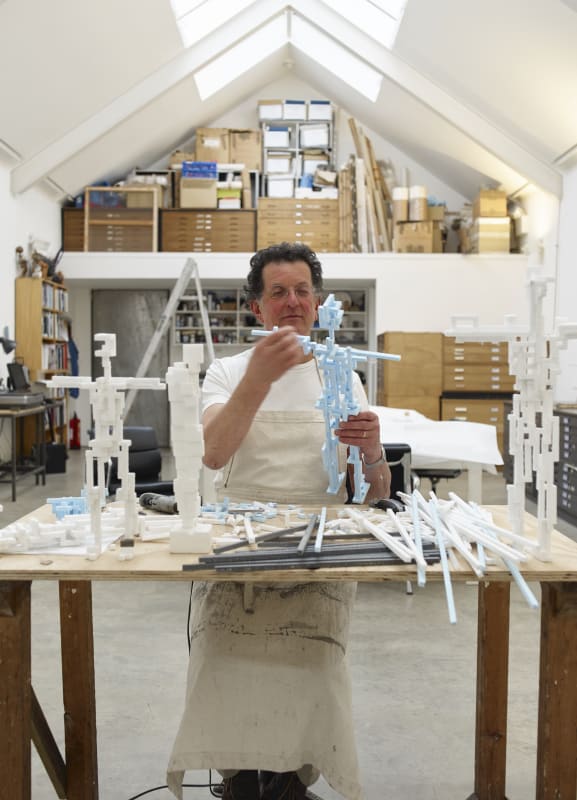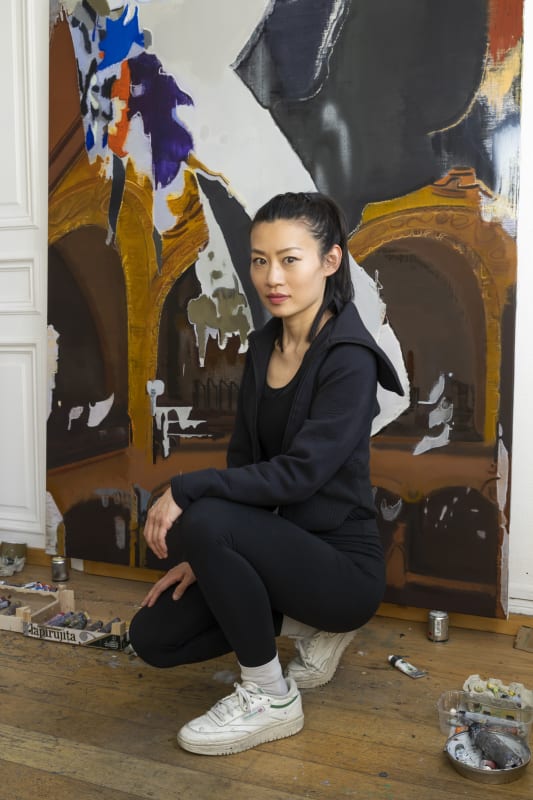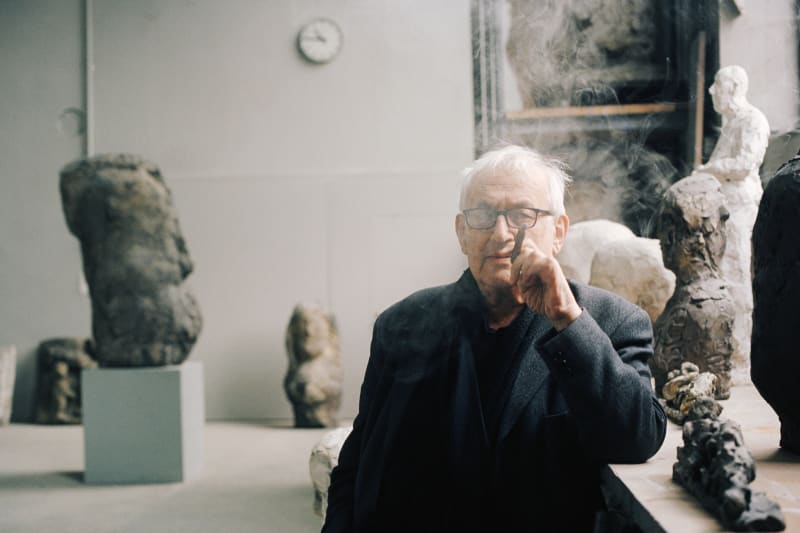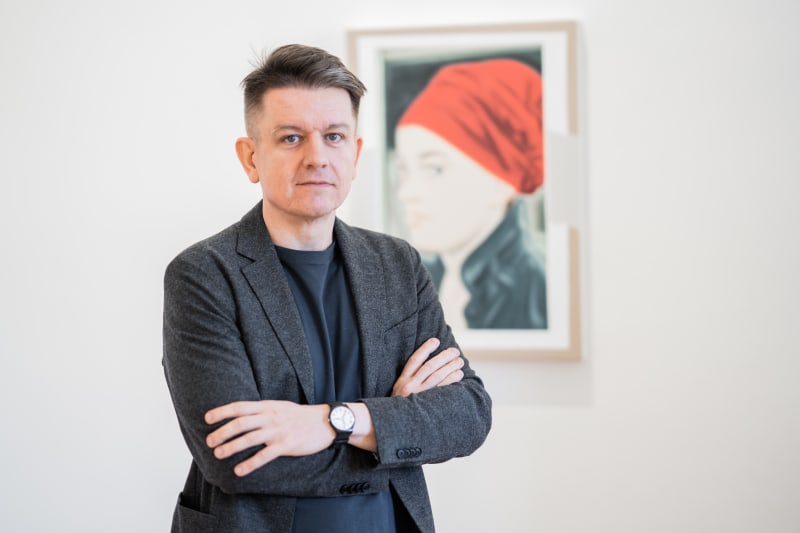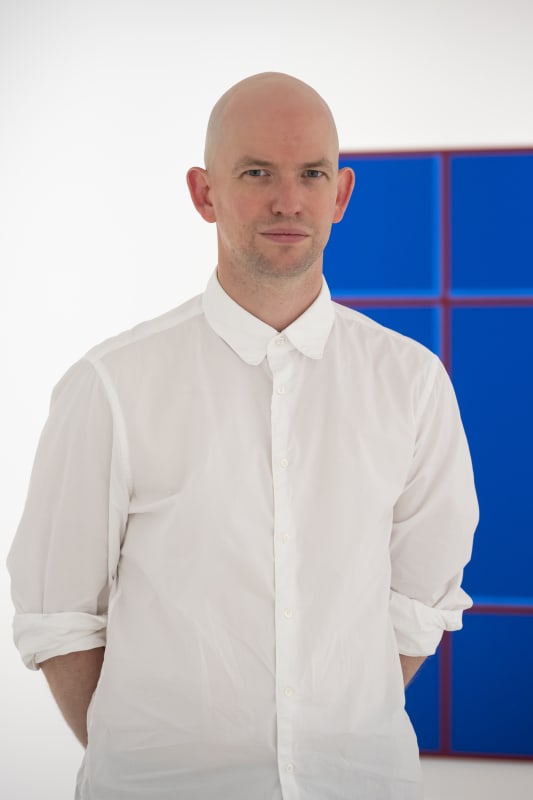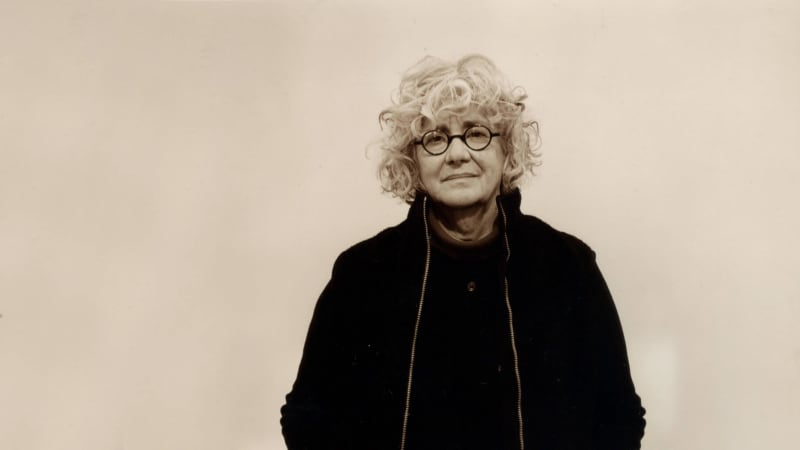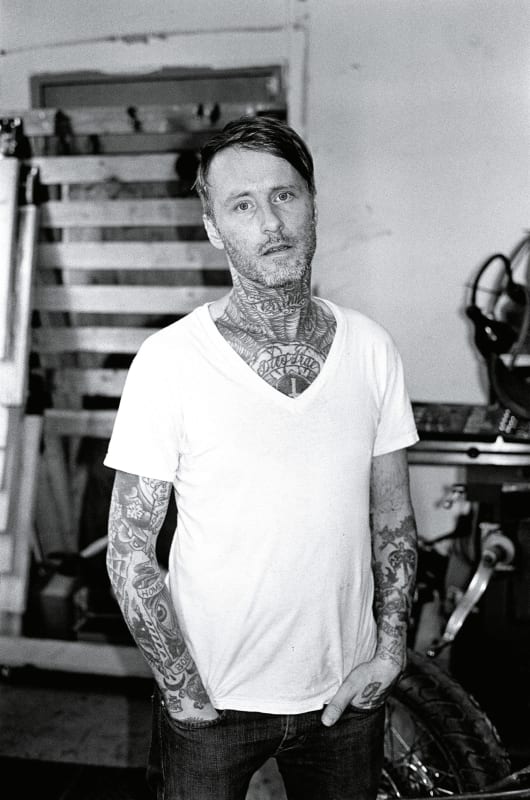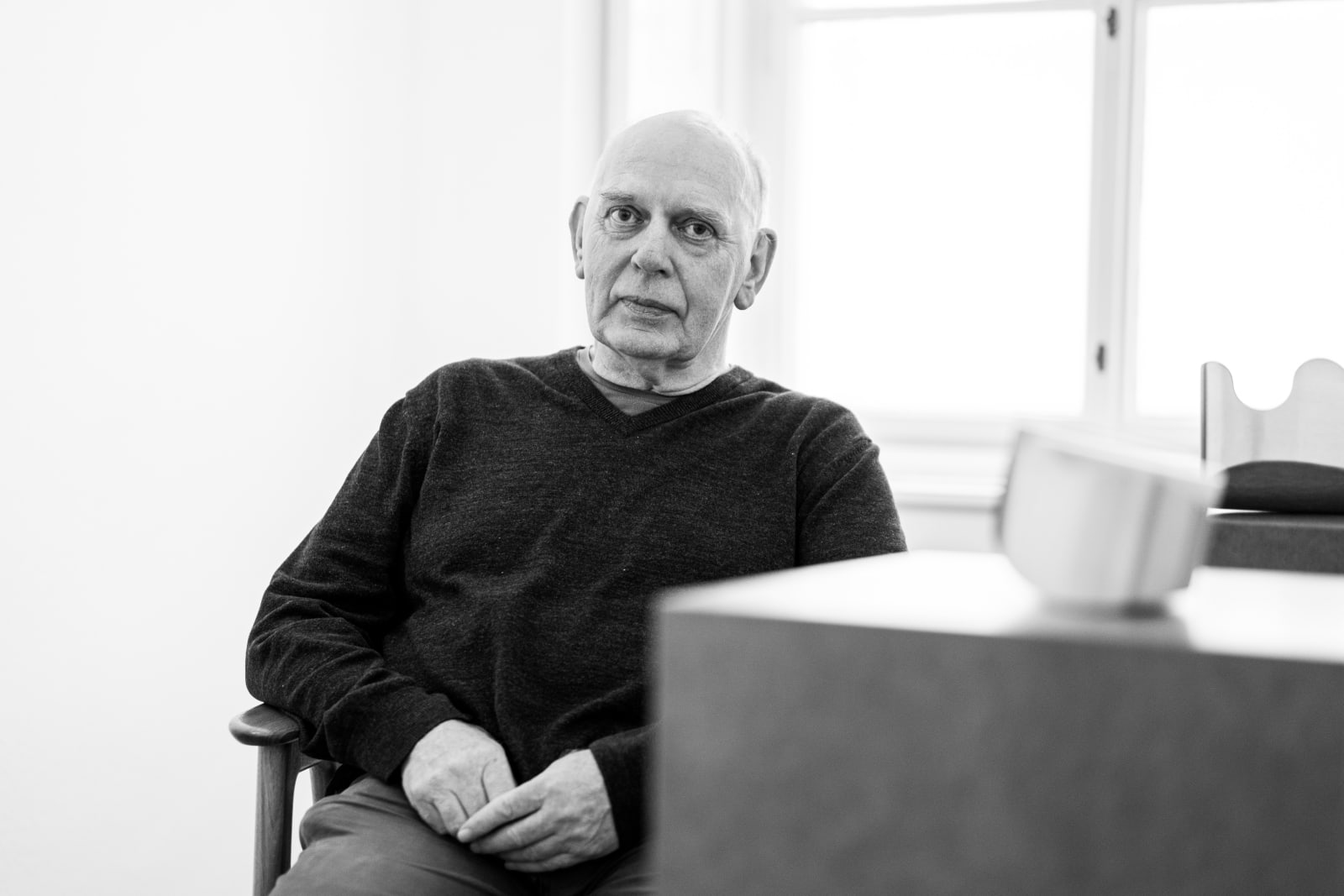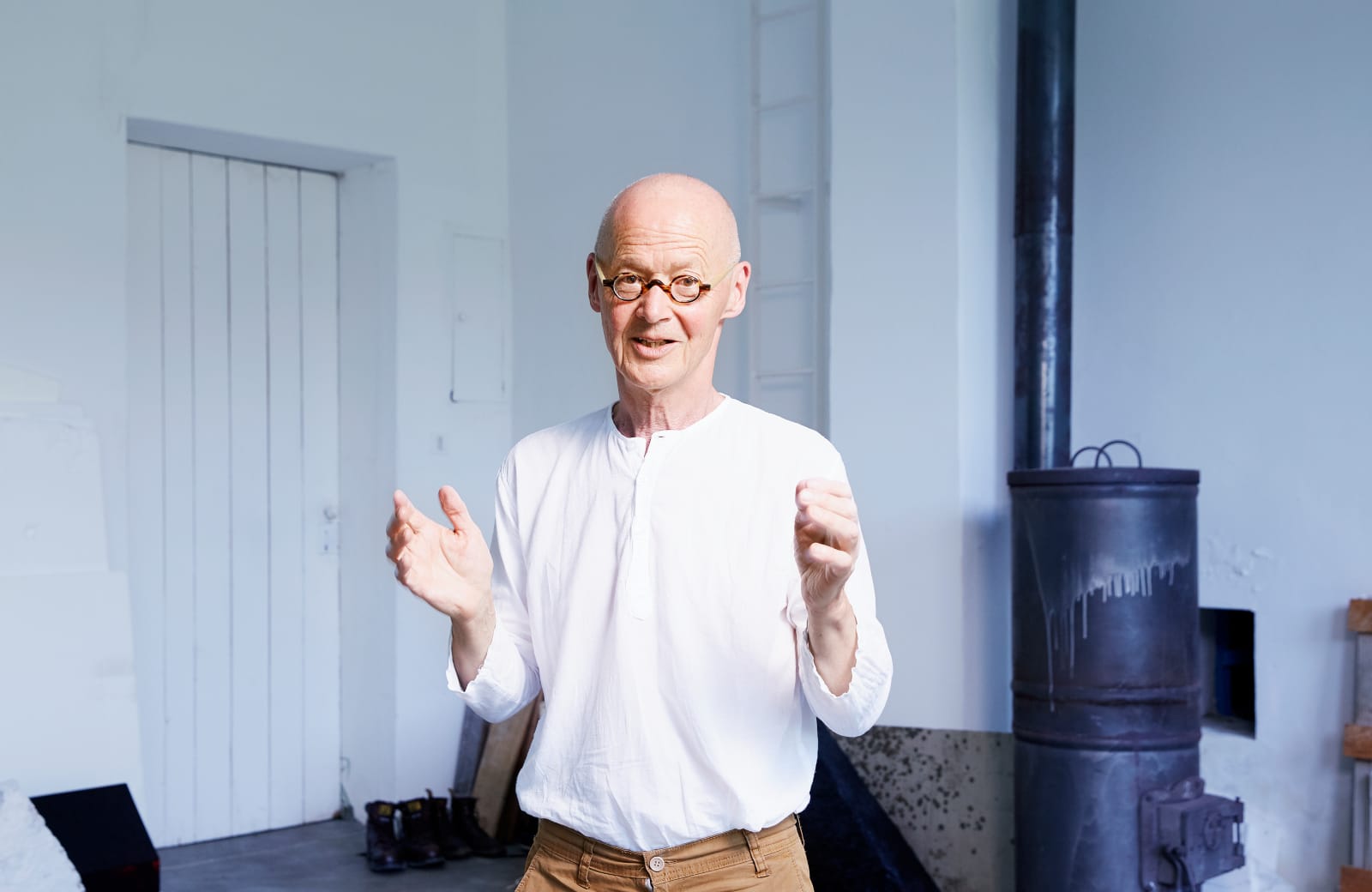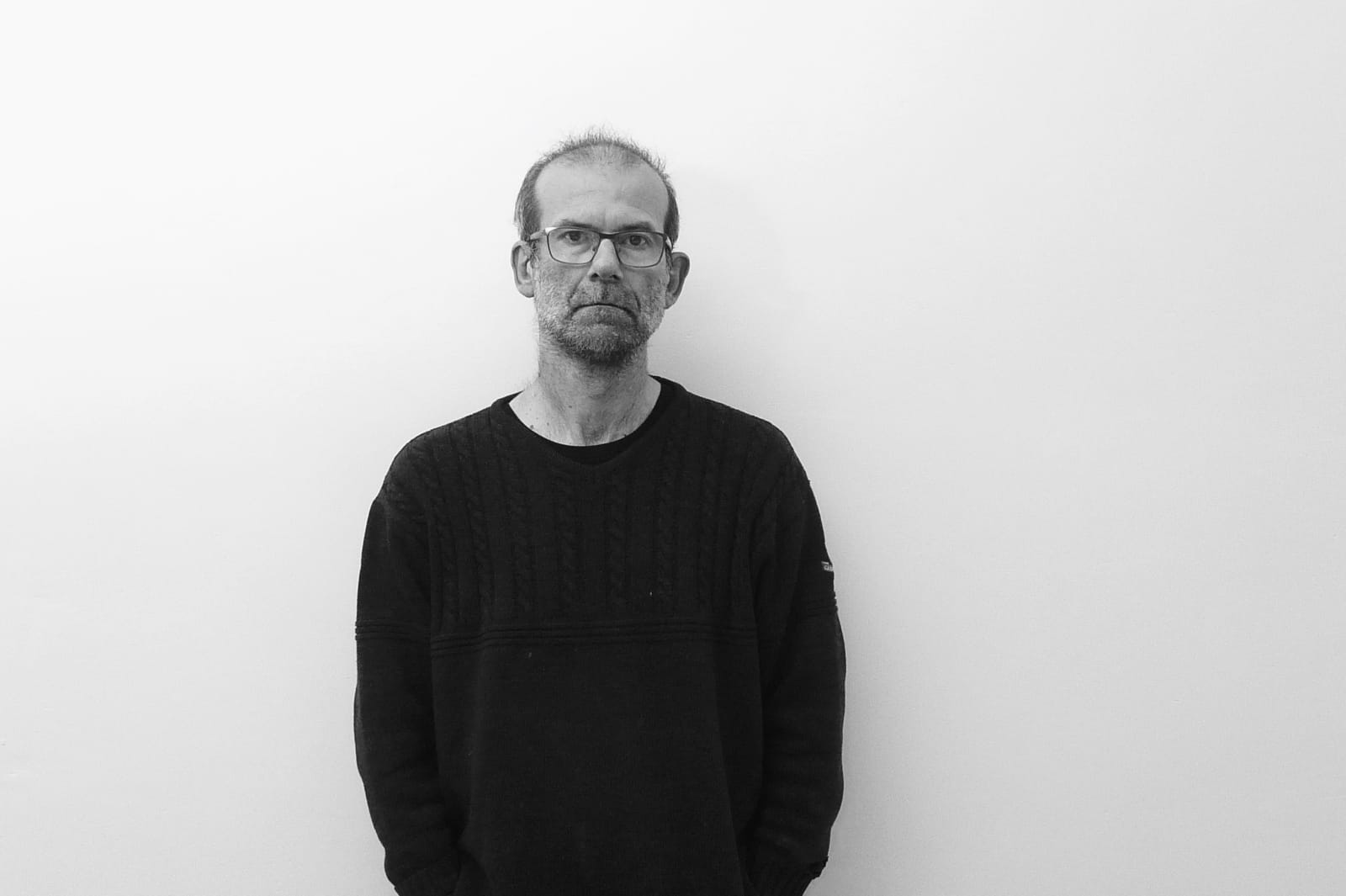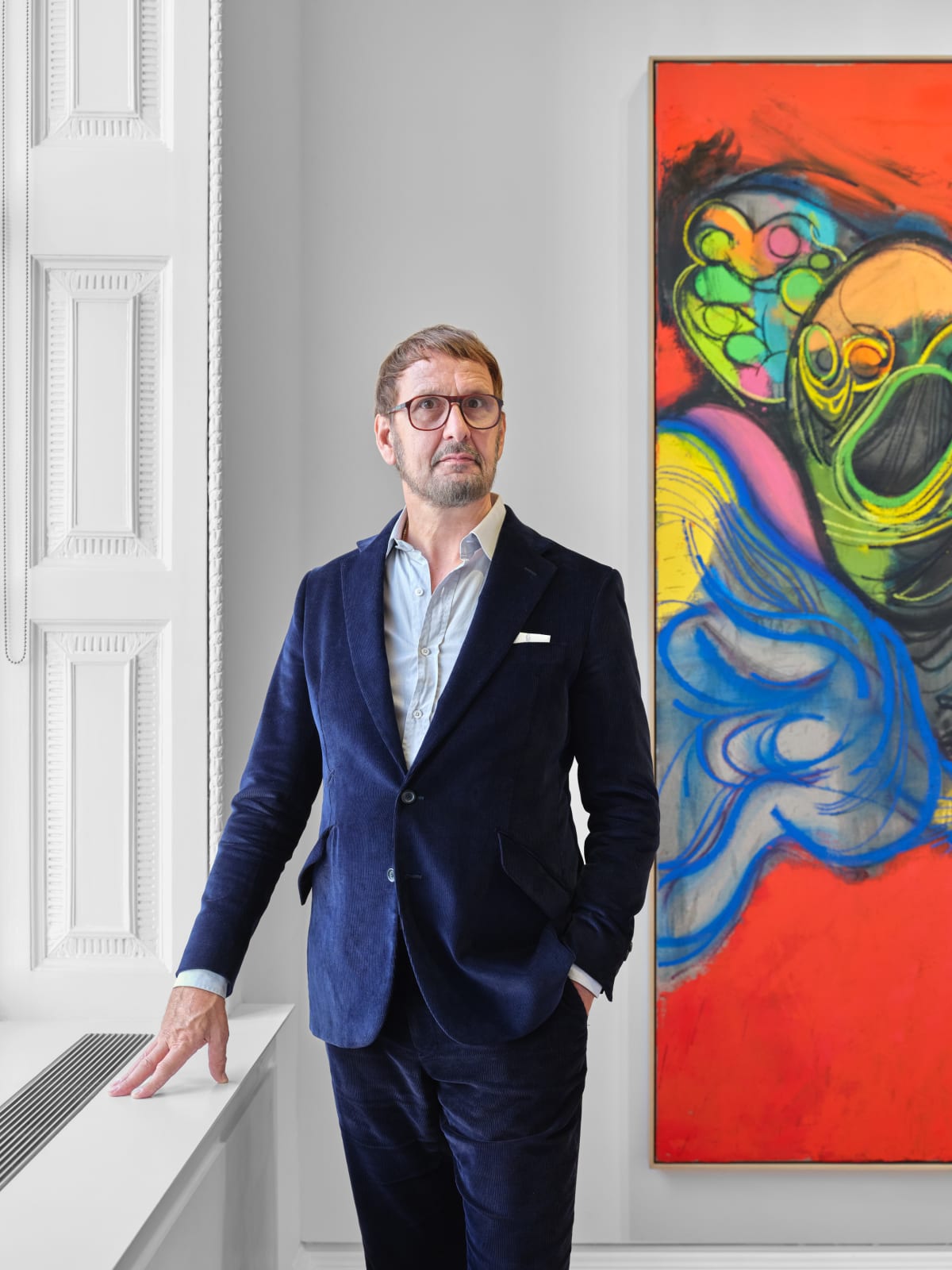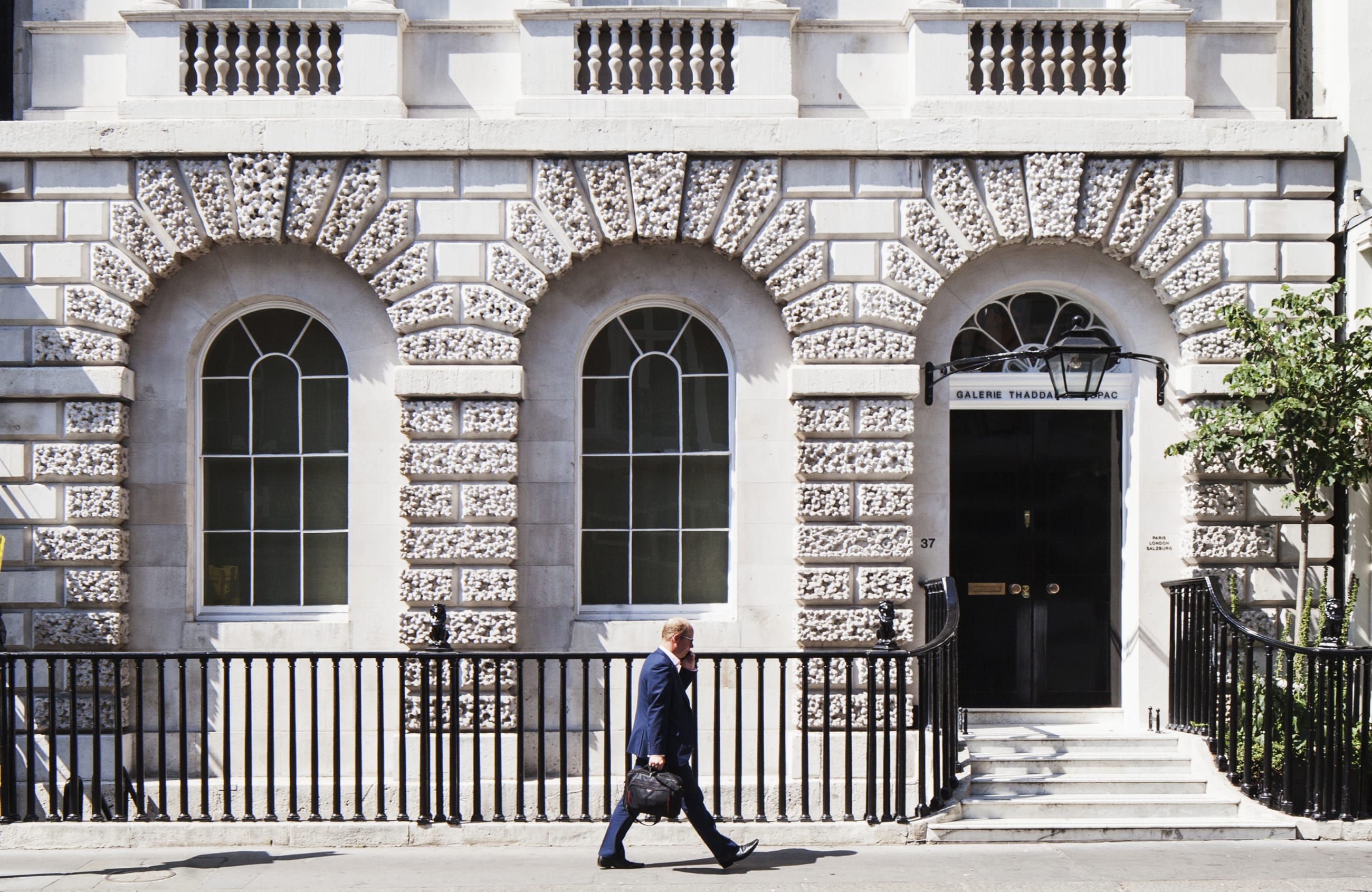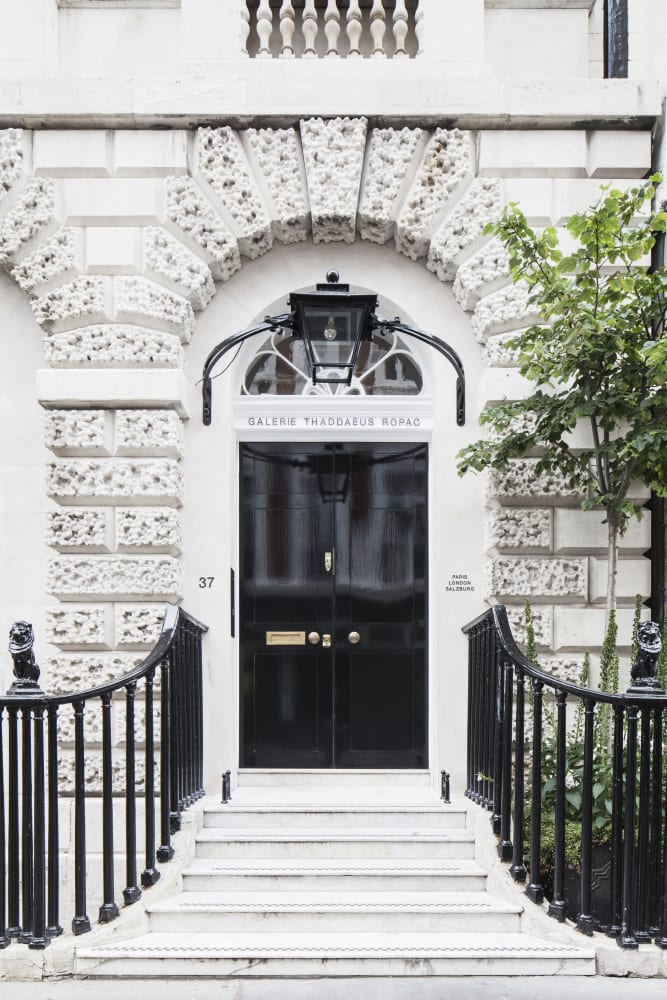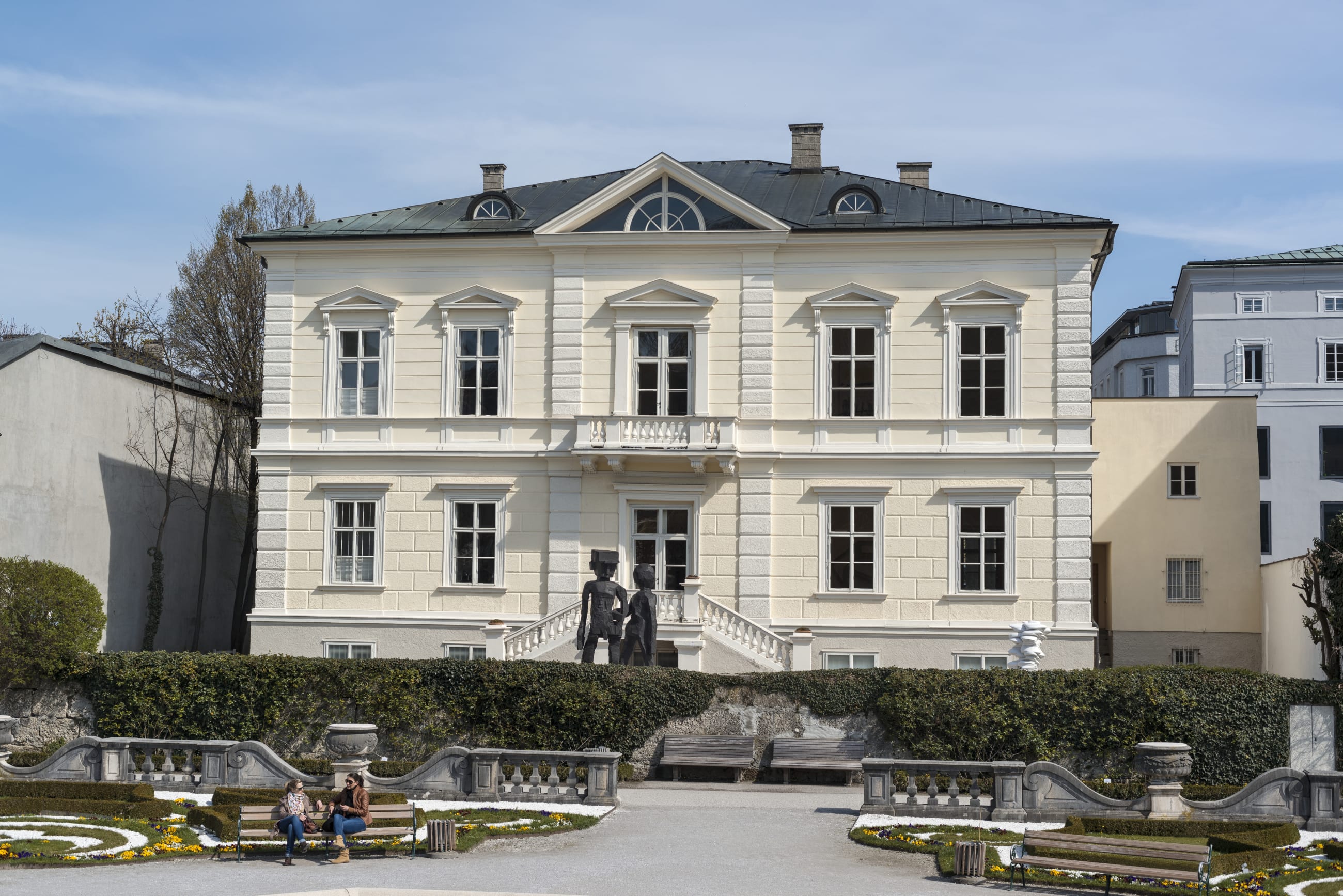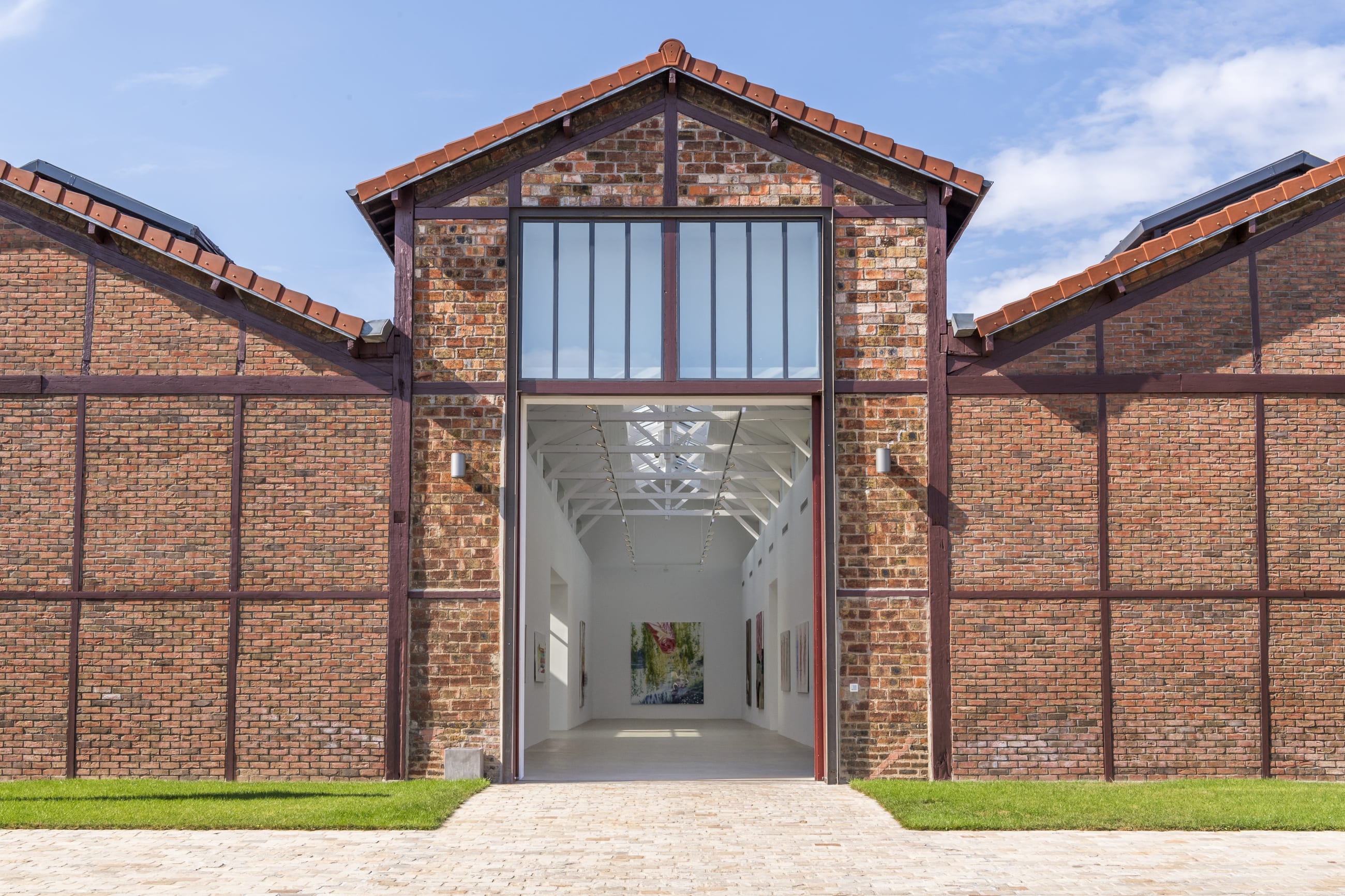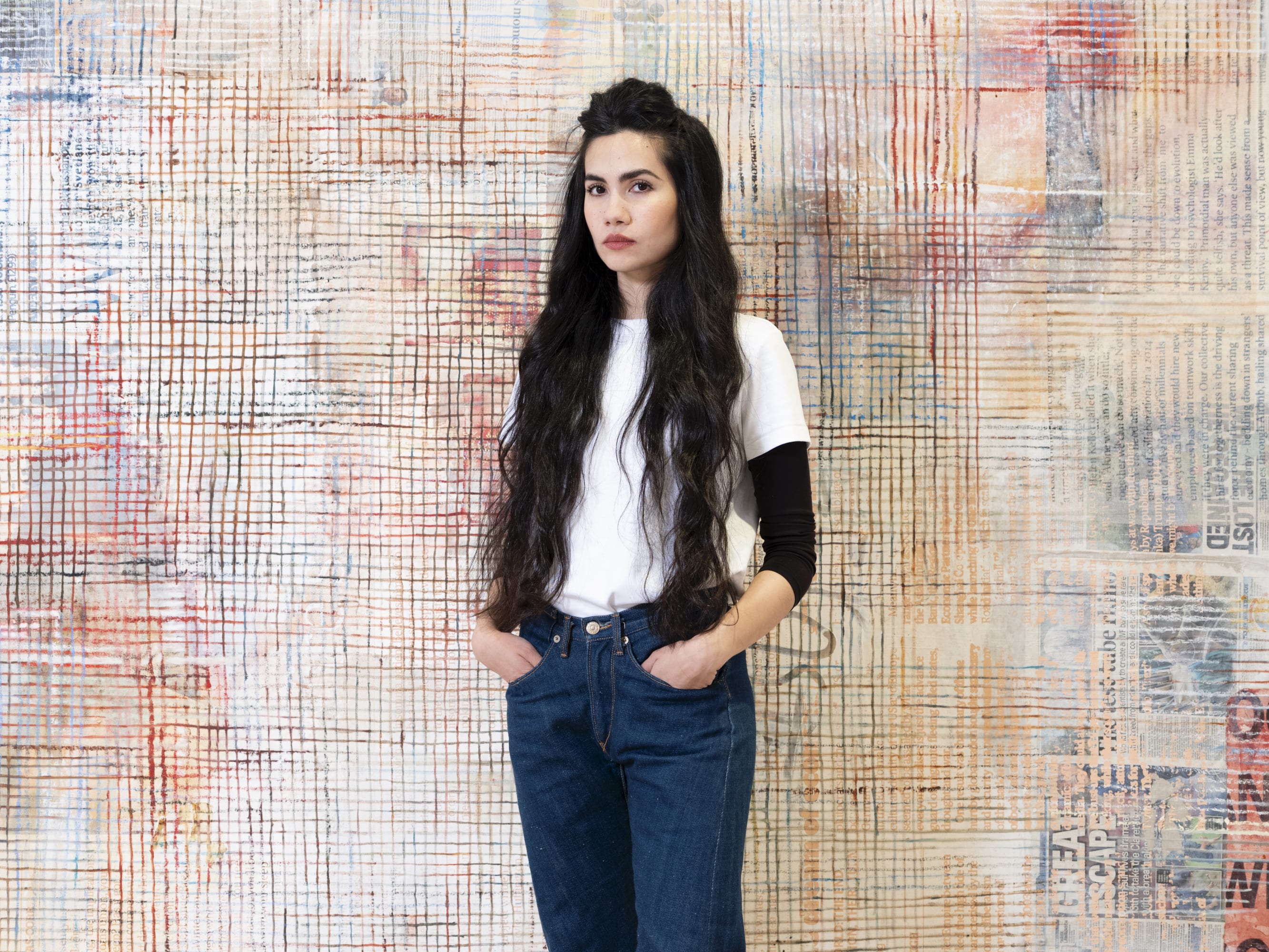

Mandy El–Sayegh
Overview
'I'm interested in the idea of artefacts not as ethnographic evidence but as a portable ecology - they move, they travel, they contribute to cultural hybridity rather than cultural homogeny. All these elements are constantly remapping how we read history and how we consume the present.'
Mandy El-Sayegh works across diverse media to examine how social, cultural and political orders are formed and deconstructed in the contemporary world. In large-scale paintings, table vitrines, immersive installations, performances and videos, she collages disparate fragments of information together, interrogating the ways that meaning might emerge from the relationship between these different source materials. Her works often feature newsprint, advertisements, aerial maps, anatomy books and her father's calligraphy, alongside hand-painted elements and non-traditional materials such as latex, allowing her to move between material, corporeal and linguistic frameworks. El-Sayegh describes her process as 'preoccupied with part-whole relations'. As she assembles diverse materials (or 'parts') into a realised artwork ('the whole'), she enacts a cumulative process by which meanings come into being. Motifs are often repeated across multiple works, demonstrating how the signification of information might change when placed in new contexts.
By emphasising the boundaries of her chosen medium, El-Sayegh draws attention to the systems that determine how information is categorised, contained and understood. She creates 'quasi-archives' in her table vitrines, suggesting associations and references through the objects' placement in a shared, delineated space. In her Net-Grid canvases, overpainted grids simultaneously structure and obscure the detritus of popular culture. These paintings also reference the primacy of the grid in Modernist art, which El-Sayegh found alienating: 'I felt that there was a whole set of systems that I did not know, like a joke that I didn't get'. In response, she creates 'forms [that] bring about questions of legitimate and illegitimate readings of culture and context', as well as the implicit power structures that determine who legitimises such readings.
Mandy El-Sayegh works across diverse media to examine how social, cultural and political orders are formed and deconstructed in the contemporary world. In large-scale paintings, table vitrines, immersive installations, performances and videos, she collages disparate fragments of information together, interrogating the ways that meaning might emerge from the relationship between these different source materials. Her works often feature newsprint, advertisements, aerial maps, anatomy books and her father's calligraphy, alongside hand-painted elements and non-traditional materials such as latex, allowing her to move between material, corporeal and linguistic frameworks. El-Sayegh describes her process as 'preoccupied with part-whole relations'. As she assembles diverse materials (or 'parts') into a realised artwork ('the whole'), she enacts a cumulative process by which meanings come into being. Motifs are often repeated across multiple works, demonstrating how the signification of information might change when placed in new contexts.
By emphasising the boundaries of her chosen medium, El-Sayegh draws attention to the systems that determine how information is categorised, contained and understood. She creates 'quasi-archives' in her table vitrines, suggesting associations and references through the objects' placement in a shared, delineated space. In her Net-Grid canvases, overpainted grids simultaneously structure and obscure the detritus of popular culture. These paintings also reference the primacy of the grid in Modernist art, which El-Sayegh found alienating: 'I felt that there was a whole set of systems that I did not know, like a joke that I didn't get'. In response, she creates 'forms [that] bring about questions of legitimate and illegitimate readings of culture and context', as well as the implicit power structures that determine who legitimises such readings.
The notion of corporeality is crucial in El-Sayegh's work - she refers to her collage process as 'suturing' and her painted surfaces as 'skins'. In her site-specific installations, newsprint and silkscreened texts are plastered onto the walls and floor with layers of latex that suggest medical associations or tattooed skin. The artist often incorporates the Financial Times, chosen both for its stature as an authority on global finance and the flesh-pink tone of its pages. The metaphor of the body grounds these elements in a universally recognisable register: 'we all have bodies, regardless of our context, political leanings, and time contingencies'. However, our individual experiences within those bodies are shaped by external systems that, in turn, affect how we interpret El-Sayegh's works.
Born in Selangor, Malaysia, El-Sayegh lives and works in London, where she received a BA in fine art from the University of Westminster in 2007, followed by an MA in painting from the Royal College of Art in 2009. Her first solo institutional show, the specially commissioned installation Cite Your Sources, was held at London's Chisenhale Gallery in 2019. Her work has also been shown in exhibitions at UTA Artist Space, Los Angeles, USA (2022); Busan Biennale, Busan, South Korea (2020); Sursock Museum, Beirut, Lebanon (2019); SculptureCenter, Long Island City, USA (2019); The Mistake Room, Guadalajara, Mexico (2018); Instituto de Visión, Bogotá, Colombia (2018); Sifang Art Museum, Nanjing, China (2017); and the New York Art Book Fair at MoMA PS1, Queens, USA (2016), among others. She was shortlisted for the biannual Max Mara Art Prize for Women in collaboration with the Whitechapel Gallery, London in 2017. In 2022, her work was featured in the British Art Show, the largest touring exhibition of contemporary art in the UK, followed by her participation in the Biennale Matter of Art, Prague. She also took part in the performance festival MOVE 2022: Culture club - Corps collectifs at the Centre Pompidou, presenting her piece En Masse in collaboration with choreographer Alethia Antonia and composer Lily Oakes. Two works by the artist, Net-Grid (my dad knows nothing) (2020) and Floor (aka 'Figured Ground') (2020), were acquired by the Tate for their permanent collection in 2022 with funds provided by Simon Nixon and family.
Videos




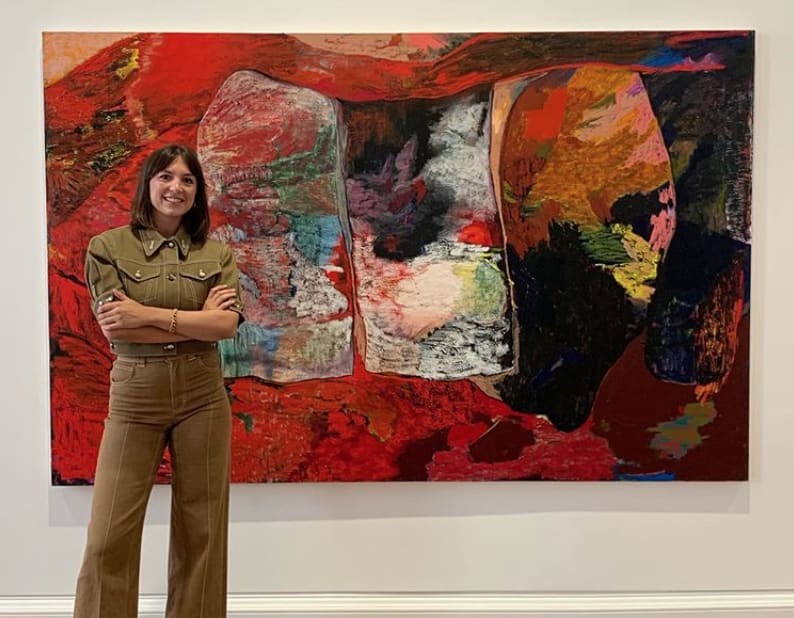
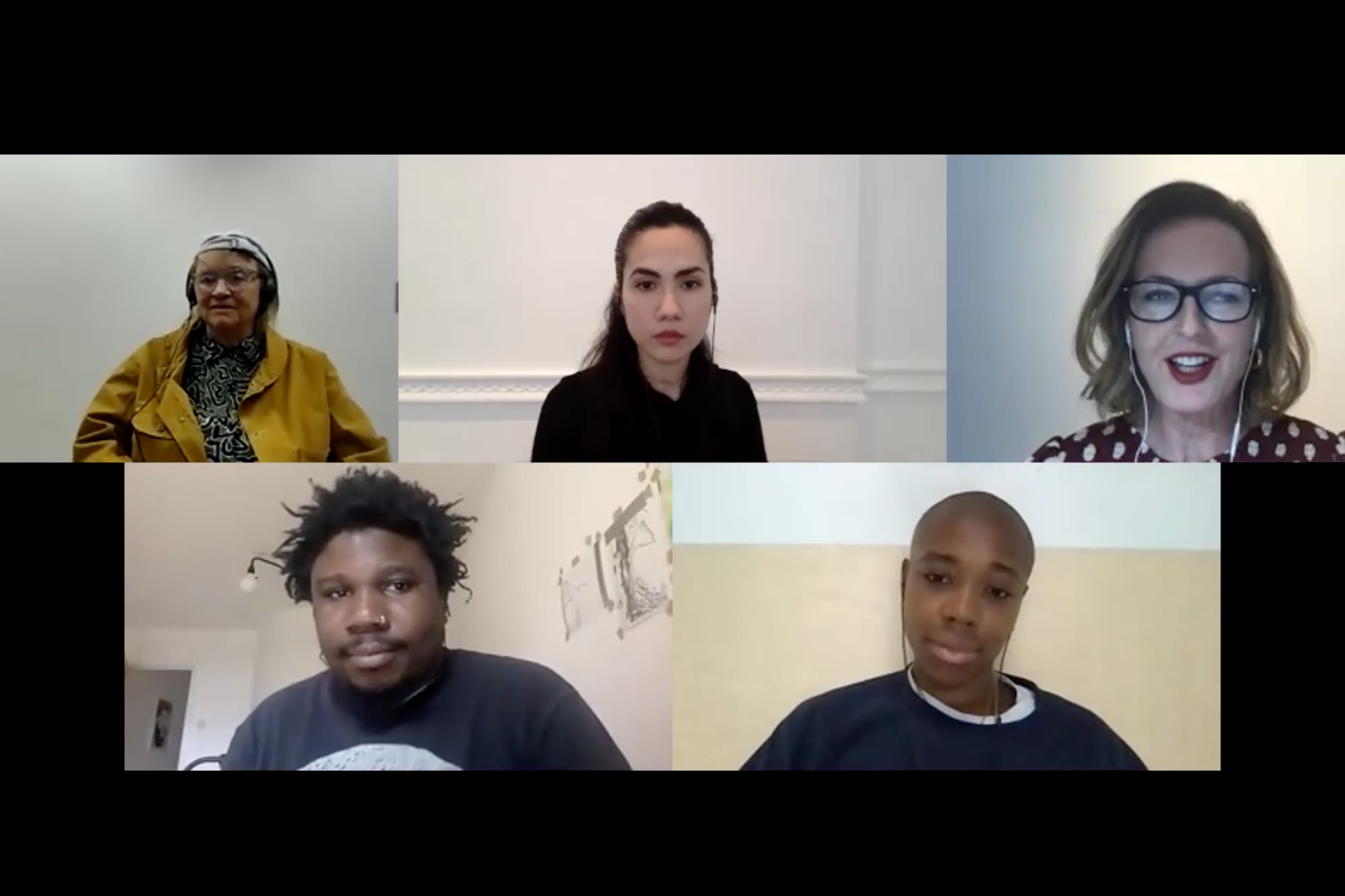
Artworks
MOVE 2022: Culture club - Corps collectifs, Centre Pompidou, 2022






Biennale Matter of Art, Prague, 2022







Publications








